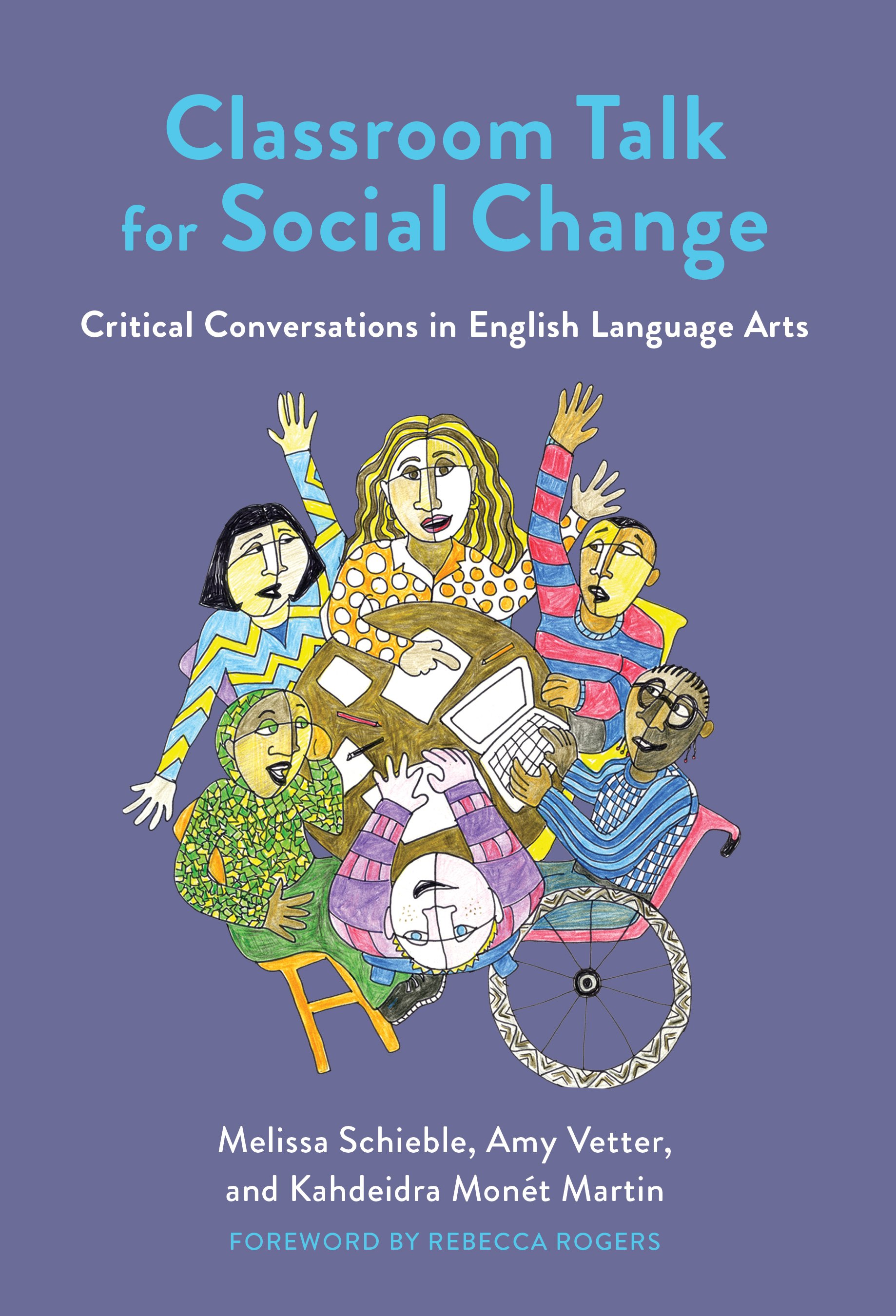reviewed by Tara N. Meister – July 27, 2020
 Title: Classroom Talk for Social Change
Title: Classroom Talk for Social Change
Author(s): Melissa Schieble, Amy Vetter, & Kahdeidra Monét Martin
Publisher: Teachers College Press, New York
ISBN:9780807763483, Pages: 160, Year: 2020
Melissa Schieble, Amy Vetter, and Kahdeidra Monét Martin’s work in Classroom Talk for Social Change drops into a ready sociopolitical context: COVID-19 amplified racist disparities in economic insecurities and in who is most vulnerable to contract COVID-19 and die (Jordan & Oppel, 2020). Police killings of #GeorgeFloyd and #BreonnaTaylor ignited rebellions around the nation and the world. Books on anti-racism top bestseller lists, as people grapple with the moment, a moment that extends into history in predictable ways.
Schieble, Vetter, and Monét Martin, experienced middle and high school teachers, begin their book with the need for critical conversations in classrooms, rooting the work of English Language Arts teachers on Hess and McAvoy’s (2015) question: How should we live together? This question relates equity in distance learning and abolitionist teaching practices (Love, 2019). The authors follow the question with a discussion of the sociopolitical context, citing disproportionate police killings of young Black men (Gabrielson, Sagara, & Grochowski Jones, 2014) and the violence connected with race, gender, and sexuality as an imperative for critical conversation. Milner, Delale-O’Connor, Murray, and Alvarez (2016) developed the Teachers Race Talk Survey to understand teachers’ beliefs and feelings about various questions regarding race, its place in schools, and race-based violence. They found that 90% of teachers across racial groups believe that race influences students’ education and is “an important discussion topic in the classroom” (Milner, 2017, p. 85). However, only about half of teachers believe they should discuss race-based violence in the classroom and are prepared to do so, with only 31% feeling that their teacher training programs prepared them for race discussions (p. 87).
Read the full review at Teachers College Record
